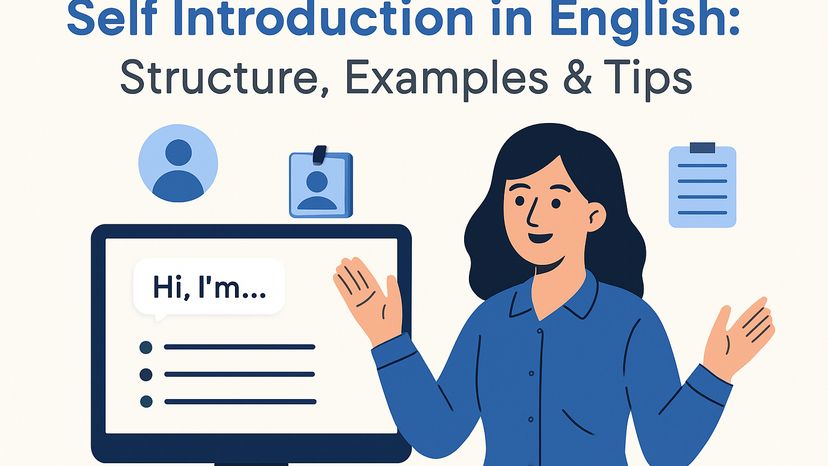How to Become a Clinical Psychologist in India
Are you thinking of becoming a clinical psychologist in India? While it is a helpful and intriguing career, there are challenges to be faced.This guide can assist you whether you're just beginning to learn more about the field or are making serious plans for the future. We'll explain what clinical psychology entails, what credentials you'll need, the true nature of clinical psychologists, and the types of employment and pay you can anticipate in India. You're in the right place if you've ever had questions about this line of work or wondered how to make your interest into a career.
What is Clinical Psychology?
It is a branch of psychology that deals with the treatment & assesment of behavioural, emotional,, and mental disorders.
What are clinical psychologists supposed to do?
Clinical psychologists are the mental health professionals in the mental health department who provide treatment to people of all ages using different therapies and techniques to help an individual cope with his mental health and live well. Clinical psychology is one of the rapidly developing careers in psychology in India, which will lead to fascinating areas of research, hence careers for anyone who wants to pursue mental health.
Educational Pathways and Requirements
High School and Undergraduate Preparation
If you are wondering how to be a psychologist after 10th or how to be a psychologist after 12th in India, the best place to begin your journey towards becoming a psychologist is with a strong academic background post high school. You want to be aware of and prioritize certain subject areas, more specifically you should be focusing on biology, psychology, and sociology as they will be very beneficial, depending on the education that you eventually pursue. The next step towards becoming a psychologist is to take an undergraduate degree in psychology after your secondary education, further establishing the preliminary prerequisites that you will need in order to register as a clinical psychologist.
Postgraduate Studies and Specializations
To work as a certified clinical psychologist and be successful in practice you will need to have completed a master’s in clinical psychology. In India, a master’s in clinical psychology is usually a requirement for practice and will provide students with more knowledge of the discipline, refined skills in psychological practice, and clinical practice experience. Students will have taken courses that include, at a minimum, training in the three pillars of professional practice (clinical assessment, therapeutic interventions, and evidence-based practice) so they can develop an integrated theory of practice.
Eligibility and Course Criteria
It is worth knowing what is needed in Clinical Psychology eligibility and Clinical Psychology course eligibility. In general, students will need a bachelor's degree in psychology or equivalent program, with a good GPA. Some schools might also have their own entrance exams and/or interviews for analytics on program suitability, assessment or overall entrance into the program. It is important to consider whether you focused on subjects for clinical psychology at the undergraduate level, both because these subjects set you up to succeed in postgraduate courses, but also to inform your understanding of any psychologist eligibility for specialised courses.
Step-by-Step Guide: How to Become a Clinical Psychologist
- Secondary Schooling: Concentrate on science and humanities subjects that build an understanding of different human behaviors and why humans interact.
- Undergraduate Degree in Psychology: Enter into a bachelor’s degree that allows you exploration into the foundational courses of clinical psychology in India.
- Entrance Exams: Some universities call for an entrance essay testing your ability for high-level study.
- Masters in Clinical Psychology: Earn a master's degree, which enables you to keep learning and gaining hands-on experience. This is a significant mark in deciding how many years it would take to be a clinical psychologist.
- Internships and Practical Experience: Acquire real-world practical experience through employment in a clinical setting. Such experience is important because it will prepare you for the work of a clinical psychologist.
- Licensing and Certification: Lastly, you might need to establish yourself as a licensed clinical psychologist through the fulfilment of any state or national regulations based on your location.
Licensing and Certification
Certification is the next step following your education and your practicum. Getting licensed as a clinical psychologist adds credibility to you and allows you to practice legally in hospitals, private practice, and academically in hospitals. This is generally recommended for any registered psychologist, but may vary according to region, so be sure to check the clinical psychologist board date requirements.
Career Opportunities and Prospects
The need for mental health experts is growing in India, developing different career pathways in clinical psychology. Whether you are searching for a clinical psychologist near me or looking for a clinical psychologist vacancy in India, there is much room for advancement. Let's explore some aspects of your new career:
- Salary and Benefits: Many question the clinical psychologist salary in India. The salary earned by a clinical psychologist is determined by their experience, where they live in India, and what type of employer they work for. In this regard, clinical psychology provides much potential for a meaningful salary.
- Job Advancement: As awareness of mental health increases, the demand for practitioners also increases. Several of these positions, including clinical therapist or licensed clinical psychologist, are now open.
- Variety of Practice Settings: Clinical psychologists work in research labs, counseling psychology clinics, and hospitals. There always exists some combination of experience and challenge by working in a clinic or lab.
- Further your specialty: Some professionals further their specialization by focusing on counseling psychology or psychotherapy, which impacts the psychotherapy salary in India.
Tips for Aspiring Clinical Psychologists
- Investigation and Networking: Familiarize yourself with the various courses and educational/accreditation programs.If you are asking,"how to become a clinical psychologist in India?" then don't hesitate from taking advice from professionals in this field.
- To Stay Informed:The field of clinical psychology is continuously evolving. Staying current on new research and developing techniques will enhance your marketability.
- Experience: Providing experience through internships and opportunities for exposure is essential, and it will help shape your learning while adding valuable content to your resumé for entry-level positions or clinical psychologist program applications.











